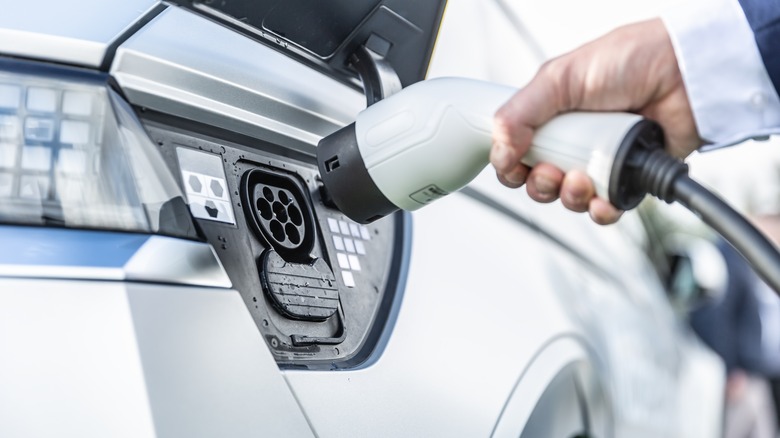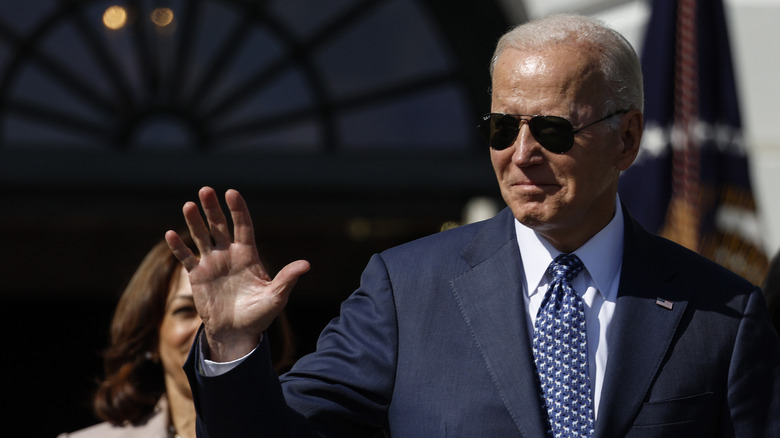How State Restrictions Are Making It Harder To Buy An EV
It seems that nearly every matter of public discussion has become a political football recently, from COVID restrictions and border policy to the use of gas stoves in homes. Now it appears the divide in some states is making it more difficult for some Americans to buy and drive electric vehicles. In many states, new laws are being passed to tax EV owners, either at the point of purchase or registration or when it comes time to charge their vehicles.
Beginning in September, EV owners in Texas will have to pay $200 annually to register their vehicles and $400 with the purchase of a new EV. More than half of the states now impose a fee for EV registration, with Washington's $225 per year the steepest in the nation. While for many states, the fees are simply a way to replace lost gasoline tax revenue, some of the bills could be seen as backlash against the Biden administration for recently passed aggressive climate change policy legislation.
EV taxes are part of an ongoing political back-and-forth
Tax credits of $7500 are available to individuals or businesses that buy an EV between 2023 and 2032, and the Biden administration has set a goal of cutting greenhouse gas emissions at least 50% from where they were in 2005 by 2030. California announced that it will phase out the sale of internally combusted engine-powered vehicles by 2035, while legislators in Wyoming recently tried and failed to introduce a similar measure banning EV sales in their state by that same date.
Some lawmakers are rallying behind the banner of human rights, pointing out that a large percentage of the lithium used in EV batteries comes from Chinese forced labor and much of the world's cobalt supply is sourced from Congolese mines that employ children. Kentucky State Representative Jim Gooch, a Republican who serves as chair of his state's House Energy committee, told Politico, "We're moving so fast to electric vehicles, we're just making the problems worse."
Gooch said he was especially resistant to the electrification of public transit systems and school transportation vehicles. "I certainly don't want to put my kids on a school bus that's electric. I just don't want to do it. And I'll fight in any way I can to make sure that that's not something Kentucky's doing."

